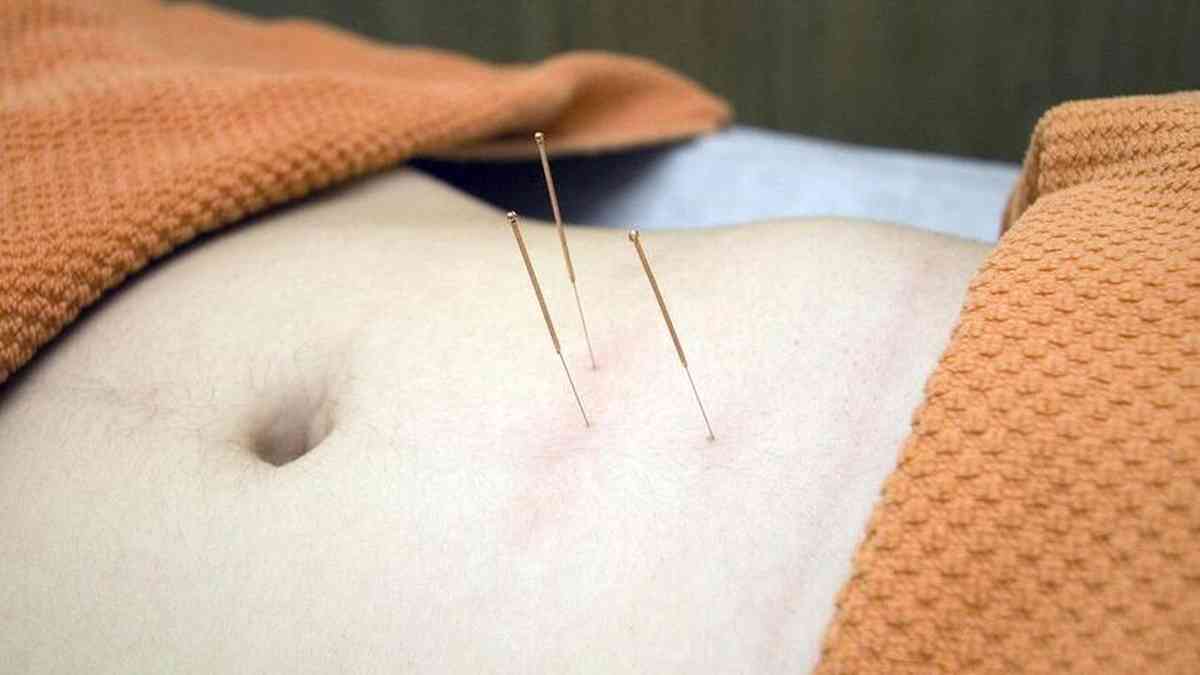Recently, the scientific evidence for acupuncture and traditional Chinese medicine, recognized as integrative and complementary practices (PICs) in the Unified Health System (SUS) since 1988, has been called into question.
This practice is mentioned in the book “What Nonsense! Pseudoscience and Other Absurdities Not Worth Taking Seriously” (context editor), by microbiologist Natalia Pasternak and journalist Carlos Orci, as without scientific support.
According to them, there are studies that challenge the scientific evidence for this practice; In general, the effects found range from moderate to complete absence of efficacy.
Acupuncture is not for every disease
On the other hand, medical societies and acupuncturists say there is, yes, evidence of the practice’s positive effects — but not for all types of ailments.
See below what acupuncture is, what the science says about its evidence and what the possible applications are.
What is acupuncture?
Acupuncture appeared at least 2,000 years ago, and consists of piercing specific points on the skin with metal needles along pathways known as meridians, through which qi (pronounced “qi”) passes and which serves to regulate certain physiological symptoms, such as pain.
According to orthopedic surgeon, acupuncturist and president of CMBA (Brazilian Medical College of Acupuncture), Andre Wan Wen Tsai, acupuncture is a Chinese medical treatment that was misunderstood when it was brought to the West.
is reading: How can acupuncture help deal with anxiety?
“There was this misinterpretation that ‘qi’, the vital substance of the body in Chinese, means energy. So when we talk about modern acupuncture, it’s not about rebalancing energy, that’s really silly, but regulating physiology through Endocrine activation in the brain helps, for example, to relieve pain,” he explains.
According to him, Chinese doctors who practice acupuncture also tend to practice allopathic medicine. “It is not a substitute, but a therapeutic complement,” he says.
However, there are different flows of acupuncture practice that recognize different locations of points on the body for piercings. The lack of consensus is one of the main arguments against treatment.
is reading: Acupuncture is an ancient technique that is an invitation to well-being.
Pasternak and Orsi wrote in their book: “It is a little difficult to imagine how a therapist would choose which points to pierce if different schools use different points, and even among those who studied in the same schools there is no consensus.”
What do scientific studies say about the practice? Does it have evidence of effectiveness?
Since at least the late 1970s, many randomized controlled clinical trials (the so-called gold standard in medicine) have sought to evaluate the effectiveness of acupuncture for various health conditions.
The results found, however, are contradictory. In general, studies fail to be so-called double-blind, because patients either receive the practice or not, so a different technique or placebo-control retractable needles are used.
“In fact, there are many studies that have not been able to prove the superiority of real acupuncture. In these, the conclusion is that the beneficial effect is most likely the so-called placebo effect,” Tsai explains.
In all treatments, there is something called the placebo effect, which is when a person thinks they feel better once they receive a treatment, even if it doesn’t work.
However, the doctor believes that there are other studies that have shown mild to moderate efficacy for the following conditions: neck pain (neck pain), low back pain (low back pain), some types of muscle pain (such as fibromyalgia), knee osteoarthritis and headaches (headache). ).
There are also some preclinical studies, conducted on laboratory animals, that have yielded positive results — in this case, no placebo effect.
is reading: What is a gold plated microneedle body treatment?
The mechanism by which acupuncture reduces pain is sedation. “With perforation of the skin, neurotransmitters, such as serotonin and norepinephrine, are released, which reduce inflammation and reduce the perception of pain,” he says.
Such a symptom first appeared in a 1976 scientific study, produced by neuroscientist Bruce Pomeranz, of the University of Toronto (Canada). The idea that acupuncture points represent the meridians of internal organs and that they can relieve physiological sensations or symptoms has not been proven.
What are the recommended health conditions?
Currently, acupuncture has many recommendations in the medical literature, ranging from treatments for chronic pain, fibromyalgia, dental pain, headaches, and migraines, to some mild psychiatric conditions, such as anxiety and depression.
“You have to think about what outcome you want from acupuncture, whether that be as a result of improved sleep, reduced anxiety, improved quality of life by reducing pain, and in that sense it might have a positive outcome.” says Paolo Kurtzman, an orthopedic surgeon at the IOCB (Institute of Campo Bello Orthopedics and Traumatology).
Are there contraindications to acupuncture?
According to Tsai of the CMBA, there are no specific contraindications to acupuncture. What the doctors who do this practice say is that each patient has a recommendation for treatment or not.
“It’s important when referring to acupuncture to know the exact diagnosis and the patient’s circumstances. For example, there was a myth that pregnant women couldn’t undergo acupuncture, but it depends on the patient. There is a problem with doing it,” explains the doctor.
Who can perform acupuncture?
Acupuncture has been recognized since 1995 by the CFM (Conselho Federal de Medicina) as a medical specialty. However, advice from other health professionals has tried to include therapy as one of their practices, including nutritionists, psychologists, and estheticians.
This led to a legal dispute that ended up in the Supreme Federal Court (STF) in 2019, with a decision in favor of the medical profession last year banning other health professionals from practicing acupuncture. Thus, since 2022, only doctors, veterinarians, and dentists are allowed to perform acupuncture.

“Hardcore beer fanatic. Falls down a lot. Professional coffee fan. Music ninja.”






More Stories
The law allows children and adolescents to visit parents in the hospital.
Scientists pave the way for the emergence of a new element in the periodic table | World and Science
Can dengue cause hair loss? Expert explains how the disease affects hair